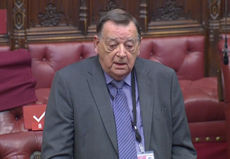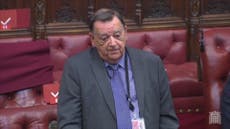Boris Johnson’s failure to U-turn quickly is helping the ‘nasty’ party label stick
A self-interested rather than selfless approach is deeply counter-productive for the Conservatives – as Marcus Rashford’s brilliant campaign has shown

Your support helps us to tell the story
From reproductive rights to climate change to Big Tech, The Independent is on the ground when the story is developing. Whether it's investigating the financials of Elon Musk's pro-Trump PAC or producing our latest documentary, 'The A Word', which shines a light on the American women fighting for reproductive rights, we know how important it is to parse out the facts from the messaging.
At such a critical moment in US history, we need reporters on the ground. Your donation allows us to keep sending journalists to speak to both sides of the story.
The Independent is trusted by Americans across the entire political spectrum. And unlike many other quality news outlets, we choose not to lock Americans out of our reporting and analysis with paywalls. We believe quality journalism should be available to everyone, paid for by those who can afford it.
Your support makes all the difference.If you are going to do a U-turn, you need to do it quickly. Yet ministers are in slow motion mode on providing free school meals during the school holidays. The signs are that they will bow to the inevitable as part of a government-wide spending review on 25 November.
They are edging towards a disguised volte-face by expanding holiday clubs after a trial in 17 areas this summer. They could present this as providing catch-up educational opportunities as well as a meal, denying a U-turn even though everyone would know it was.
While the government dithers, the saga dominates the headlines and the Treasury meter runs faster and faster. Henry Dimbleby, the government’s food adviser and co-founder of the Leon restaurant chain, has sent Boris Johnson a £1.2bn plan including a holiday activity and food programme, a healthy food voucher scheme and extension of free school meals.
Spending £522m on “Eat Out to Help Out”, so middle-class people could boast they had got £50 off their bill or had used the scheme three times in a week, was awful politics while the government refused to spend £20m on free school meals in this week’s half term in England. They continued in Scotland, Wales and Northern Ireland.
Yet this fiasco is not just about bad tactics, but the absence of a strategy on social justice. It reveals the Tories’ blind spot on the issue. Johnson is the latest Tory to focus on the working poor rather than the jobless. Revealingly, his key promise when running for Tory leader was tax cuts for people on the 40p higher income tax rate.
His eventual offer to the country in his party’s manifesto last December was to raise national insurance thresholds, a boost for the low paid work but not the jobless. With today’s evidence from the Resolution Foundation that one in five young people and more than one in five black and minority ethnic workers on furlough have already lost their jobs, the UK needs a stronger safety net.
Ominously, it is proving even harder to find new jobs than after the 2008 financial crisis. The think tank calculates an unemployment rate of 7 per cent in September – well above the latest official 4.5 per cent figure in the three months to August. Among 18-24 year-olds, the figure is 20 per cent, the highest level of youth unemployment in four decades.
It is true that in-work poverty is a scourge. The number of people in work but in poverty is estimated to have risen from 2.3 million to 4 million since 1996-97. Of these, 1.9 million are full-time workers, 1.4 million part-timers and 0.7 million full-time self-employed. Yet extra help for the self-employed in the pandemic might soon be pared back.
The better news is that Rishi Sunak might be prepared to extend the £20-a-week top-up for the 5.6 million people on universal credit, which is due to end next April. That is big money – about £6bn a year. But as one Tory MP put it: “Taking £1,000 a year away from the poorest people would make free school meals look like a tea party.”
One reason why the Tories are in danger of ignoring those at the bottom of the pile is a lazy assumption that the poor don’t vote, or don’t vote Tory. Tim Montgomerie, a Downing Street adviser on social justice until walking out in frustration in February, told the BBC Radio 4’s PM programme: “I have no idea what the Conservative Party’s long-term strategy for social justice is.” He added: “What I struggled to see, both before the election last December and since, was a real focus on the very poor – the broken poor, people who don’t vote, who probably aren’t going to form party of a Conservative majority.”
It has happened before. Nick Clegg revealed to me how David Cameron and George Osborne rejected Liberal Democrat calls to build more social housing during the coalition on the grounds it would merely “produce more Labour voters”.
A self-interested rather than selfless approach is deeply counter-productive for the Tories: as Marcus Rashford’s brilliant campaign has shown, millions of better off voters care about those who are less fortunate.
Tory MPs, bombarded with protests about free school meals, feel it is unfair to again be labelled the nasty party which hates the poor and the north. But the government has brought this on its own head. As Montgomerie tweeted: “In one single, stupid act the Tories are retoxifying their brand."





Join our commenting forum
Join thought-provoking conversations, follow other Independent readers and see their replies
Comments